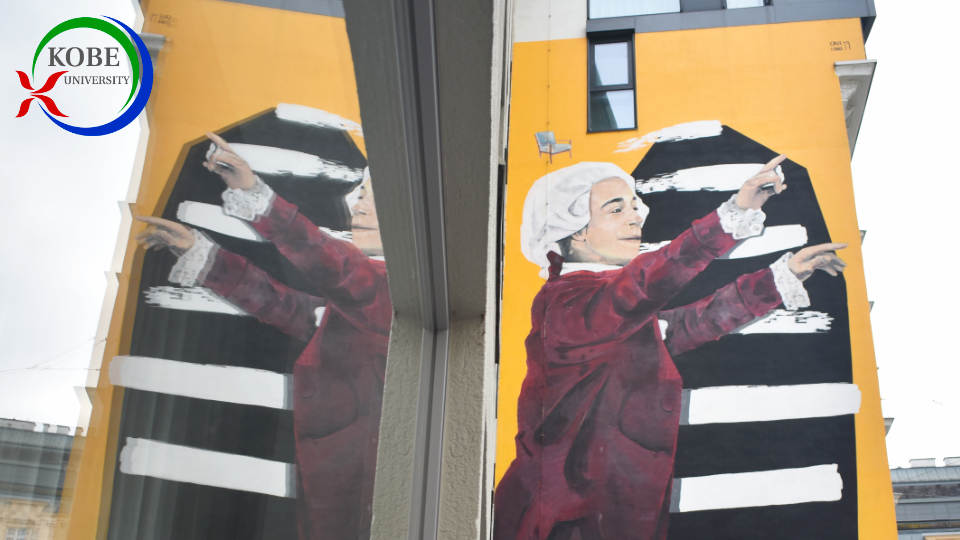Spring Academy Vienna 2022
Students of the Kōbe University (Japan) in Exchange with the Viennese Cultural Field
Short Description
This week-long seminar will focus on exploring various topics within the realm of culture in Vienna, including cultural policy and cultural management. On the topic of “Cultural responses to constant changes in societies, social conditions and politics. An in-depth exploration of challenges and opportunities faced by cultural practitioners in Vienna and Kōbe”, students will delve into the core of Viennese cultural life, such as music, art, and theatre, discovering issues of management, government support for the arts, keeping the ‘cultural classics’ contemporary in today’s world, and making art accessible to all. Students will draw on the lessons learnt through these explorations, discovering how they can be applied to the modern Japanese context.
Rationale
For artists, cultural workers and people interested in the field of cultural management, it is important to understand local and international trends. The different knowledge in this course pro-vides aspiring artists, cultural workers or arts enthusiasts an overlook into the Viennese cultural sector and its different areas of work.
Models and approaches differ around the world, and professionals are increasingly called upon to be cognizant of these approaches and to work with artists, cultural organisations, venues and management companies versed in various systems of subventions, legislations, policies, and practices.
Theme
The Austrian capital Vienna, renowned for its rich cultural heritage, offers a myriad of cultural offers for a diverse audience, from high culture to community-based and participatory activi-ties. In the large city of Kōbe on the Japanese island of Honshū, with a population similar to that of Vienna, numerous museums, concert halls, theatres and operas, jazz clubs, and a vivid inde-pendent scene as well as various sights offer a diverse cultural life.
Both cities have faced the challenges brought by the COVID-19 pandemic in the last two years. Cultural practitioners, institutions and cultural policymakers have had to rapidly adapt to the circumstances by incorporating digital means of communication and new forms of mediation and education. Last but not least, societal needs have changed, which in turn offer an opportunity to take a closer look at the immediate value and understanding of art and culture in different so-cieties, to break down outdated patterns of thought and to open up innovative creative spaces anew.
In various online workshops, lectures and virtual visits, the students will interact with representatives of different cultural institutions in Vienna to learn about their operations and management. They also will discuss their questions, which they formulated in the run-up to this Academy, with experts and students from Vienna. The aim of this virtual journey is to explore regional and inter-national similarities and differences in cultural policy issues and implementation possibilities through a cultural exchange.
Questions and topics to be addressed:
- Overview: To what extent do the very different cultural institutions in Vienna diverge in terms of creative forms of implementation, challenges and needs?
- “Classics” in connection with contemporary forms of expression in music and theatre: Which differentiated forms of expression can be described for so-called “classics” and how are they performed in a contemporary context in different institutions?
- How important is music education in the Viennese concert scene? With which innovative formats has the field reacted to the pandemic-related restrictions in the last two years?
- What are the main institutions presenting musicals in Vienna and what are some of the tendencies in its programming? In relation to consolidated musicals or contemporary proposals, what are some of the challenges of producing musicals or being a professional in this field?
- In what ways are young and professional musicians supported in Vienna, and by who? What are some of the challenges faced by students and young music professionals in Vienna?
- Comparative views of theatre and concert life in Vienna and Kōbe.
- Reflections on the political and social significance of art and culture in Vienna: How does this manifest itself in terms of a variety of different institutions, cultural policy measures and innovations as well as management structures and funding allocations?
- Focus on cultural management/administration: What training opportunities are there in the fields of cultural management with a focus on theatre and concert management? What are the differences and overlaps between theatre management and music/concert management?
- Cultural Politics: How do cultural policy approaches in Austria and Japan differ in theory and practice? How are arts and cultural initiatives perceived in Japanese society, and how can they be democratized?
- Participation: What forms of activation and involvement of citizens in artistic activities exist in Vienna? Can ideas from Vienna be an inspiration for participatory programmes in Japan? If so, in which form of implementation or do cultural/systemic adaptations need to be made?
EDUCULT has conceived and organized this year’s programme of the Spring Academy in Vienna and is looking forward to exciting discussions and insights!














